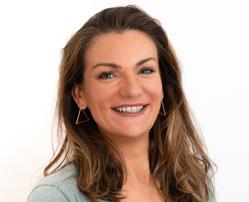
According to the BSB’s latest report on diversity at the Bar, of the 56.9 per cent of barristers who provided information on their disability status, only 6.3 per cent disclosed a disability. This is substantially lower than the percentage of disabled people in the employed working age UK population estimated at 11.3 per cent.
When excluding those that had not provided information, 6.3 per cent of the Bar; 6.6 per cent of non-QC barristers; 5.3 per cent of pupils; and 3.4 per cent of QCs had declared a disability as of December 2020.
The figures also suggest that the percentage of those with a declared disability may decrease as level of seniority increases.
These figures are particularly poignant to me as I was diagnosed in 2021 with Stargardts Disease (juvenile macular degeneration) which is a rare genetic condition which causes progressive sight loss and in some cases, blindness. To say that it has affected every area of my life is an understatement. I had known for some time that my eye sight was deteriorating and knew there was a high chance that I had Stargardts as my brother had been diagnosed some years ago. I felt an immense amount of shame and frustration at the possibility of having to be dependant on others for help. I’ve always been extremely independent so asking for help doesn’t come easily to me.
Due to the progressive nature of Stargardts, inevitably, a time will come when the level of assistance I need will increase. That’s the issue with progressive diseases; the not knowing what your future will look like, or in my case, feel and sound like as my sight deteriorates.
After reaching out to a couple of barristers, Kelly Cronin (Park Square Barristers) and Diego Soto-Miranda (1 Essex Court), who I knew would understand my fears and frustrations, I sought advice from them about being in and remaining in practice, I was overwhelmed and inspired by their stories. They advised me to stay proactive and use the tools provided to me through the Access to Work scheme and all the available tech and IT resources to ensure that I was able to continue fulfilling my role as a practitioner, was great advice. This would allow me to take the weight off managing my disability to focus on managing my practice.
Having others who could share their stories and provide me with practical advice was exactly what I needed and eased the sense of isolation I’d been feeling for a long time. I’d not known barristers with a disability and felt lost when thinking about who I could speak to and share my concerns with. Although my family and friends had been extremely supportive when telling them of my diagnosis, it was essential for me, when coming to terms with the changes I faced, to speak to barristers who I knew had faced similar struggles.
It took me a while before I realised that being a barrister with a disability meant forming part of, and representing, an incredible community of people with visible and non-visible disabilities. Finding support in a community, sharing my concerns as well as obtaining practical advice from those who I knew would understand has been essential for me.
Wearing my neon-yellow lanyard displaying my ‘Visually Impaired – please be patient’ card was, initially, a tough prospect. But I soon came to realise that aside from ensuring that I got the assistance I may need and letting others know that I might need a little extra time, it’s indicative of the ongoing necessity for diversity and inclusion at the Bar.
Much greater visibility and representation of those with disabilities regardless of whether its due to a genetic condition, accident or injury and whether it be a mobility (such as wheelchair users), sensory (those like myself with sight loss or those who are hard of hearing) or a neurological challenge (like epilepsy or autism) is an ongoing issue.
Wearing my lanyard means more than asking for help. It means that others who face challenges of a visible or non-visible nature can overcome them and have a successful career at the Bar.
Christina Warner is a barrister at Goldsmith Chambers.